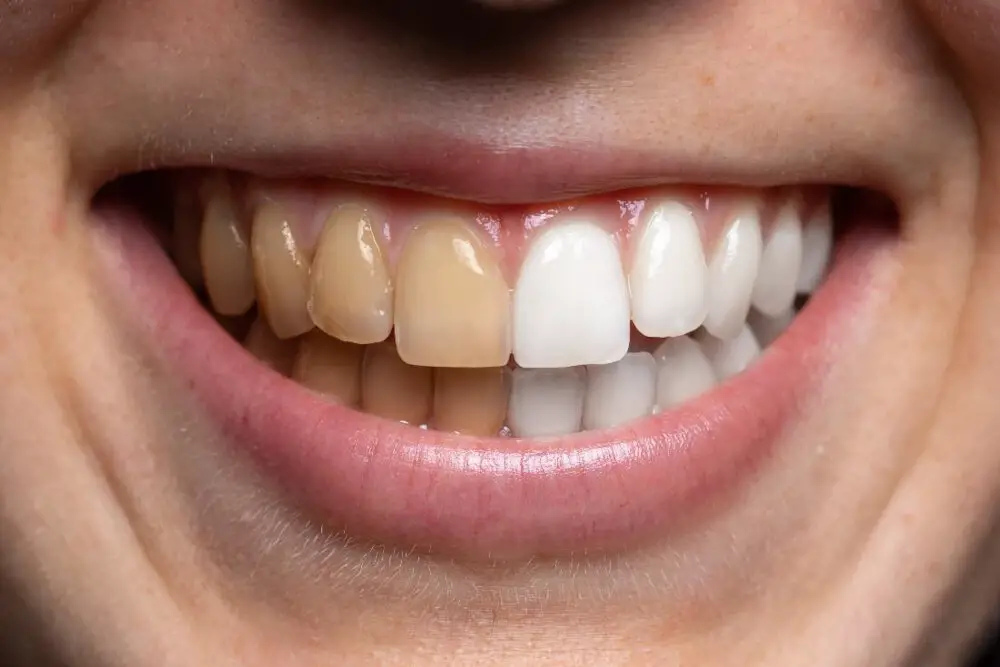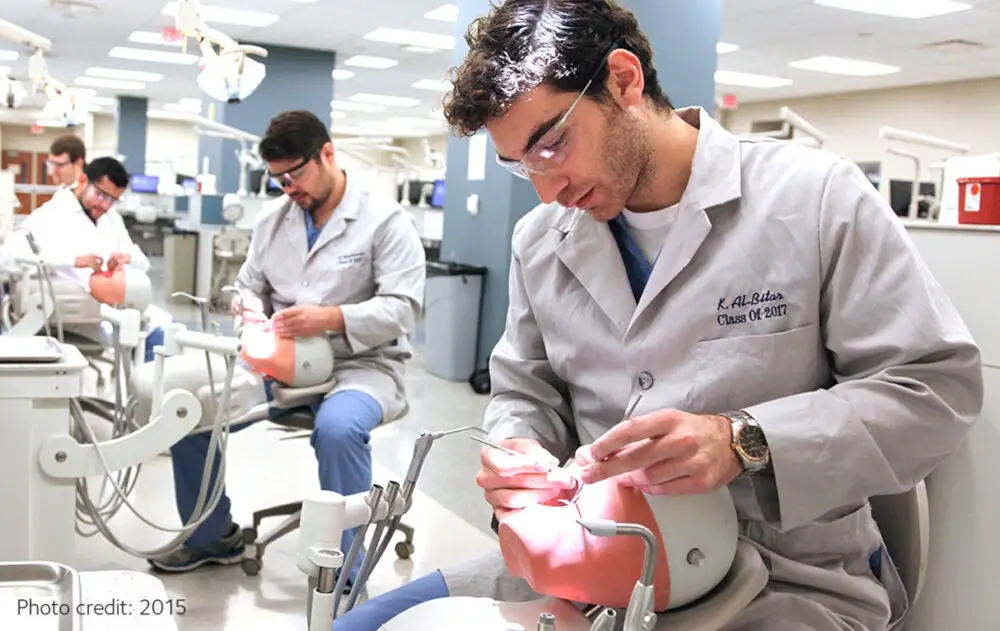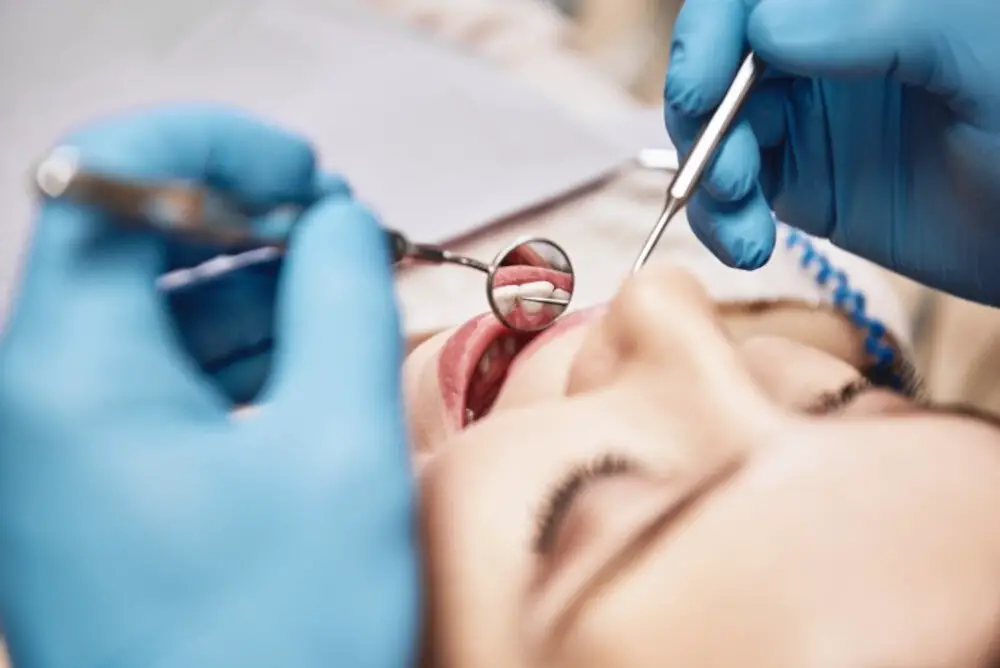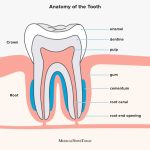Methamphetamine and Your Teeth: The Devastating Effects Explained

Methamphetamine, commonly known as meth, is a highly addictive drug that has become a serious public health concern in recent years. While the drug is notorious for its impact on mental and physical health, few people are aware of the devastating effects it can have on teeth. Methamphetamine use can lead to severe dental problems, including tooth decay, gum disease, and tooth loss. These issues can be so severe that they have earned the nickname \meth mouth.\Methamphetamine use has been linked to a wide range of negative health effects, including heart disease, stroke, and mental health problems. However, the impact on oral health is often overlooked. The drug can cause teeth to rot from the inside out, leading to painful abscesses and severe oral infections. Additionally, meth users often experience dry mouth, which can exacerbate dental problems by reducing saliva production. Despite the many risks associated with meth use, the impact on teeth is one of the most visible and devastating consequences, and it is important for people to understand the risks associated with this dangerous drug.
Methamphetamine, often referred to as \meth,\ is a highly addictive synthetic drug that affects the central nervous system. It is classified as a stimulant and is known for its ability to produce a euphoric high that can last for hours. Methamphetamine can be smoked, injected, or snorted, and it quickly enters the bloodstream and travels to the brain. The drug increases the production of dopamine, a neurotransmitter that is associated with pleasure and reward. However, methamphetamine also has devastating effects on the body, including damage to the teeth and gums, as well as the cardiovascular and respiratory systems. Chronic use of methamphetamine can lead to addiction, brain damage, and other serious health problems.
Methamphetamine is a highly addictive drug that has devastating effects on the teeth. It causes a number of dental problems, including dry mouth and teeth grinding, which can lead to tooth decay and erosion. Methamphetamine also constricts the blood vessels in the mouth, reducing the flow of oxygen and nutrients to the teeth and gums. This can result in gum disease, tooth loss, and other serious dental issues. In addition, methamphetamine users often neglect their oral hygiene and are more likely to consume sugary foods and drinks, which further exacerbates these problems. The damage done to teeth from methamphetamine use is often irreversible and requires extensive dental intervention to correct.
How Methamphetamine Causes Tooth Decay

Methamphetamine, commonly known as crystal meth, is a highly addictive stimulant drug that significantly affects the user’s dental health. Meth use can cause tooth decay, gum disease, and other oral health issues that can lead to severe tooth loss, discomfort, and pain. The drug’s impact on dental health is due to its acidic properties, which can erode the tooth enamel, leaving the teeth vulnerable to decay and cavities. Methamphetamine use causes a dry mouth, also known as xerostomia, a condition that reduces the natural production of saliva. Saliva plays a crucial role in maintaining oral health by neutralizing harmful acids produced by bacteria in the mouth, washing away food particles and plaque, and promoting the remineralization of the teeth. The lack of saliva in meth users’ mouths creates a breeding ground for bacteria, leading to plaque buildup, gum disease, and tooth decay. The drug’s effects on the blood vessels can also cause the gums to recede, exposing the roots of the teeth and making them more susceptible to decay. Methamphetamine users often neglect their oral hygiene, exacerbating the damage caused by the drug and leading to severe dental problems.
Methamphetamine is a highly addictive drug that has devastating effects on the human body, including the teeth. This powerful stimulant is made up of a combination of chemicals, including ephedrine or pseudoephedrine, lithium, ammonia, and hydrochloric acid. The process of making methamphetamine involves combining these chemicals in a lab, resulting in a potent and dangerous substance. Methamphetamine can have a significant impact on oral health, causing severe tooth decay, gum disease, and tooth loss. The chemical makeup of methamphetamine is one of the reasons why it is so addictive and destructive, leading to long-term health problems and even death.
Methamphetamine abuse has a devastating effect on oral health, and one of the primary reasons for this is the impact it has on saliva production. Methamphetamine is a potent stimulant that increases the amount of dopamine in the brain, leading to feelings of euphoria and heightened energy levels. However, this drug also activates the sympathetic nervous system, which can reduce the body’s ability to produce saliva. This reduction in saliva production can lead to dry mouth, which is a significant risk factor for tooth decay and gum disease. Saliva is essential for neutralizing acids produced by bacteria in the mouth, and it also helps to remove food particles and debris from the teeth and gums. Without enough saliva, the mouth becomes a breeding ground for harmful bacteria, leading to a range of oral health problems.
Tooth grinding, medically known as bruxism, can play a significant role in tooth decay. When a person grinds their teeth, they exert excessive pressure on their enamel, which is the outer layer of the tooth. This pressure can cause the enamel to wear down, making the tooth more susceptible to decay. Tooth grinding can also lead to cracks or fractures in the tooth, which can provide a breeding ground for bacteria that cause decay. Additionally, tooth grinding can wear down fillings or other dental work, exposing the tooth to further damage. For individuals who use methamphetamine, tooth grinding is a common side effect, which can accelerate the decay process and lead to significant dental damage.
Signs of MethamphetamineRelated Tooth Decay

Methamphetamine is a highly addictive and destructive drug that can cause severe damage to the human body, including the teeth. Methamphetamine-related tooth decay is a common problem among users of the drug, and there are several signs to look out for. These include tooth discoloration, cavities, gum disease, and tooth loss. Methamphetamine use can also cause dry mouth, which can lead to a decrease in saliva production and an increase in bacteria growth. This can result in an increase in tooth decay and gum disease. The effects of methamphetamine-related tooth decay can be devastating and can have a significant impact on an individual’s overall health and well-being. Not only can it cause severe pain and discomfort, but it can also lead to social stigma and isolation. Methamphetamine use can also cause a range of other health problems, including heart disease, stroke, and mental health issues. It is crucial to seek help if you or someone you know is struggling with methamphetamine addiction to prevent further damage to the teeth and overall health.
Methamphetamine use can cause a variety of physical symptoms, including weight loss, skin sores, and dental problems. Users may experience a decrease in appetite, leading to rapid weight loss and a gaunt appearance. Skin sores, often referred to as \meth mouth,\ can develop from the chemicals in the drug and poor oral hygiene. The most devastating effect of methamphetamine use is on the teeth. The drug causes dry mouth and teeth grinding, leading to decay, gum disease, and ultimately, tooth loss. The damage to the teeth can be so severe that they become blackened, broken, and infected, leading to chronic pain and difficulty eating. It is essential to seek treatment for methamphetamine addiction to prevent further physical harm.
Methamphetamine is a highly addictive drug that can cause severe damage to the user’s oral health. Studies have shown that methamphetamine users are more likely to suffer from tooth decay compared to nonusers. This is due to the drug’s ability to decrease saliva production, which leads to a dry mouth and a decrease in the mouth’s natural ability to fight off bacteria. Furthermore, methamphetamine users often experience intense cravings for sugary foods and beverages, which can contribute to the development of tooth decay. The drug’s acidic nature can also erode the enamel of the teeth, leading to further decay and tooth loss. In conclusion, methamphetamine use can have devastating effects on oral health, including severe tooth decay, and it is important to seek treatment and support to overcome addiction.
Methamphetamine, also known as crystal meth, is a highly addictive drug that can cause severe damage to a person’s oral health. Studies have shown a direct link between methamphetamine use and the development of gum disease. Methamphetamine users often experience dry mouth, which can lead to a decrease in saliva production, making it easier for bacteria to grow and multiply in the mouth. Additionally, methamphetamine use can cause vasoconstriction, which limits the amount of blood flow to the gums, making it difficult for the body to fight off infections. As a result, methamphetamine users are at a higher risk of developing gum disease, which can lead to tooth loss and other serious oral health problems. It is important for those struggling with addiction to seek help and address the negative impact that methamphetamine use can have on their oral health.
Treatment Options for MethamphetamineRelated Tooth Decay

Methamphetamine-related tooth decay is a severe problem that requires professional intervention. There are several treatment options available, depending on the extent of the damage. In the early stages, a thorough dental cleaning may remove the buildup of plaque and tartar, which can help prevent further damage. However, in more severe cases, a dentist may need to perform a root canal or extract a tooth completely. These procedures can be painful and expensive, but they are necessary to prevent the spread of infection and further damage to surrounding teeth. In addition to professional dental treatment, it is essential to address the root cause of the problem: methamphetamine use. Quitting methamphetamine use is the best way to prevent further damage to the teeth and gums. Rehabilitation programs can provide support and resources to help individuals overcome addiction. Additionally, practicing good oral hygiene habits, such as brushing and flossing regularly, can help prevent future tooth decay. It is essential to address methamphetamine-related tooth decay as soon as possible to prevent irreversible damage and improve overall oral health.
Seeking treatment for methamphetamine addiction is crucial not only for the overall well-being of the individual but also for their dental health. Methamphetamine use can lead to severe dental problems such as tooth decay, gum disease, and tooth loss. The drug causes dry mouth, which decreases saliva production, leading to a buildup of bacteria in the mouth. Additionally, the drug can cause teeth grinding and clenching, which can result in chipped, cracked, or broken teeth. Without treatment, these dental issues can become irreversible and severely impact a person’s quality of life. Seeking treatment for meth addiction can not only help individuals overcome their addiction but also prevent further damage to their dental health.
Dental professionals play a crucial role in treating methamphetamine-related tooth decay, a condition known as \meth mouth.\ Due to the highly addictive nature of methamphetamine, users may neglect their oral hygiene, leading to severe tooth decay and gum disease. Dental professionals can provide treatment by removing decayed teeth and repairing or replacing damaged teeth. They can also provide education to users on the importance of oral hygiene and the risks associated with drug use. Furthermore, they can work with other healthcare professionals to address the underlying addiction issue, helping to prevent further damage to the teeth and overall health. Overall, dental professionals play a critical role in not only treating the effects of methamphetamine use on the teeth but also in addressing the underlying addiction issue.
Methamphetamine use can cause severe damage to teeth, and treatment options may include fillings and extractions. Fillings are necessary when there is a cavity or decay in the tooth, and the dentist will remove the damaged part of the tooth and fill the space with a material such as composite resin or amalgam. However, if the damage is too extensive, extraction may be necessary to remove the tooth completely. In severe cases, a full mouth rehabilitation may be needed, which involves a combination of treatments such as extractions, fillings, and dental implants. It is important to seek treatment as soon as possible to prevent further damage and maintain good oral health.
Prevention Strategies

Methamphetamine is a highly addictive drug that can cause severe damage to a person’s oral health. The first and best prevention strategy for avoiding these devastating effects is to avoid using the drug altogether. However, if someone does use methamphetamine, there are several steps they can take to minimize the damage to their teeth and gums. One of the most important things is to maintain good oral hygiene practices, such as brushing and flossing regularly. This can help to remove any plaque and bacteria that can exacerbate the damage caused by methamphetamine use. Additionally, regular dental checkups can help to catch any issues early on, before they become more severe. Another prevention strategy is to be mindful of the foods and drinks you consume. Methamphetamine use can cause dry mouth, which can lead to an increased risk of tooth decay. Drinking plenty of water and avoiding sugary or acidic foods and drinks can help to alleviate this issue. Additionally, avoiding smoking and other tobacco products can help to minimize the damage to your gums and teeth. Finally, seeking help for addiction is essential for not only one’s oral health but also their overall well-being. Rehabilitation programs and support groups can help individuals overcome their addiction and prevent further damage to their teeth and gums.
Quitting methamphetamine use is crucial for both physical and mental well-being. Methamphetamine is a highly addictive drug that not only ruins teeth, but also damages other organs and systems in the body. The drug causes severe tooth decay, gum disease, and tooth loss due to dry mouth and poor oral hygiene. In addition, it can lead to heart disease, stroke, and brain damage. Furthermore, quitting methamphetamine use can improve mental health as the drug can cause paranoia, anxiety, and depression. It is essential to seek professional help for addiction and to prioritize self-care to prevent further damage to the body. Quitting methamphetamine use may be a challenging journey, but the benefits to one’s health and overall life are immeasurable.
Maintaining good oral hygiene is crucial for preventing the devastating effects of methamphetamine on teeth. Strategies for good oral hygiene include brushing teeth twice a day with a fluoride toothpaste, flossing daily, and using mouthwash to kill bacteria. It is also important to limit sugary and acidic foods and drinks, as they can cause enamel erosion and tooth decay. Regular dental check-ups and cleanings are also necessary to catch any potential dental problems early on. Additionally, quitting methamphetamine use is essential to prevent further damage to teeth and overall oral health. By following these strategies, individuals can protect their teeth and maintain good oral hygiene.
Diet plays a crucial role in preventing tooth decay, especially when it comes to avoiding sugary and acidic foods. Consuming too much sugar can lead to the formation of plaque, which can eventually erode the protective enamel of the teeth and cause cavities. Similarly, acidic foods and drinks can create an environment in the mouth that is conducive to the growth of harmful bacteria, which can also contribute to tooth decay. To prevent these issues, it is important to focus on eating a balanced diet that is rich in nutrients like calcium and phosphorus, which can help to strengthen the teeth and promote healthy oral hygiene. Additionally, it is important to brush and floss regularly and to visit the dentist for routine checkups and cleanings.
Methamphetamine use can have devastating effects on teeth, causing extensive damage that can be difficult and expensive to repair. The drug is highly addictive and can lead to severe tooth decay, gum disease, and tooth loss. Methamphetamine use can also cause dry mouth, leading to a decrease in saliva production, which is essential for keeping teeth healthy. The drug can also cause bruxism, a condition where the user grinds their teeth, leading to further damage and wear. Methamphetamine users often neglect their oral hygiene, which can exacerbate the damage caused by the drug. The result is often a mouth full of decayed, discolored, and missing teeth, which can have a significant impact on a person’s appearance, self-esteem, and overall health.
If you are struggling with methamphetamine addiction, it is crucial to seek treatment immediately to prevent further damage to your teeth and overall health. The effects of this drug on oral health are devastating, often leading to tooth decay, gum disease, and even tooth loss. Ignoring these issues can result in irreversible damage, making it essential to take action as soon as possible. Seeking professional help can provide you with the resources and support needed to overcome addiction, restore your oral health, and prevent further damage to your teeth. Don’t let methamphetamine control your life any longer; take the first step towards recovery today.
Conclusion

In conclusion, the devastating effects of methamphetamine on teeth cannot be overstated. This highly addictive drug not only wreaks havoc on the body, but it also destroys the teeth and gums, leading to irreversible damage and loss. From tooth decay and gum disease to tooth loss and oral infections, the impact of meth use on dental health is severe and long-lasting. The only way to prevent these devastating effects is to avoid methamphetamine use altogether and seek professional dental care if you suspect any damage has occurred. The teeth are a vital part of our overall health and well-being, and it is essential to protect them from the harmful effects of this dangerous drug.







